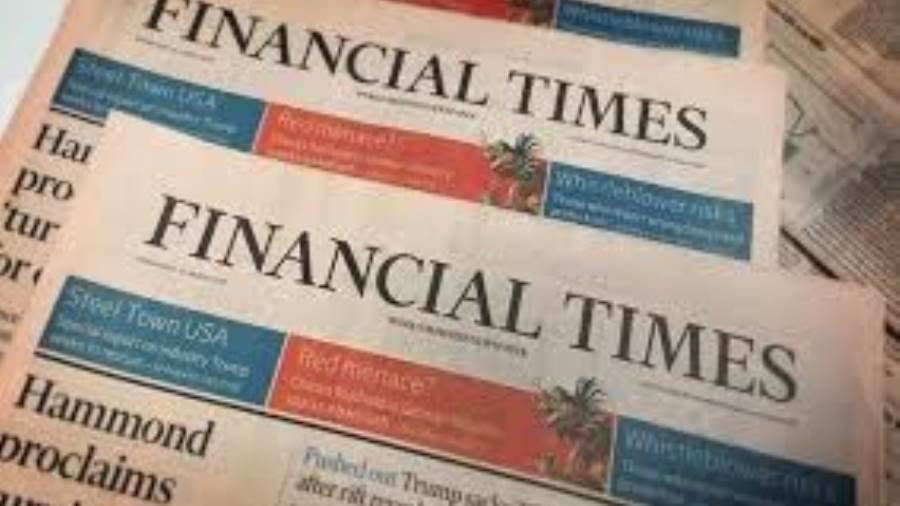Financial Times: Bank of England Warns of the Impact of U.S. Tariffs on the British Economy

Claire Lombardelli, Deputy Governor of the Bank of England, expressed concern over the impact of U.S. tariffs on the British economy, noting— in the first comment from a senior bank official— that these measures would lead to a slowdown in economic activity in the United Kingdom. This would make the central bank’s efforts to combat inflation more difficult, according to the British newspaper Financial Times.
The banking official added that the tariffs increase economic uncertainty, in addition to their effect on asset prices (such as stocks, bonds, real estate, or other investments).
Speaking at an event hosted by the Resolution Foundation think tank, Lombardelli confirmed that the tariffs would intensify economic uncertainty, highlighting their negative effects on asset prices like stocks, bonds, and real estate.
The newspaper noted that investors have been betting on a series of additional interest rate cuts in the UK this year. Markets expect a further quarter-point rate cut in May from the current 4.5% interest rate, with more cuts anticipated later in the year.
Lombardelli declined to elaborate on how Trump’s policies might affect interest rate decisions by the Bank of England. She explained that the implications of these policies for the UK would be fully discussed by the Monetary Policy Committee during its May meeting.
In the same context, The Guardian reported comments from Charlie Bean, former Deputy Governor of the Bank of England, stating that the bank should cut interest rates by at least half a percentage point at next month’s meeting, reducing the rate to 4% in response to the financial turmoil caused by the tariffs.
He emphasized the need for a strong strategy to address the impact of these tariffs, which have led to losses estimated in the trillions of pounds in global stock markets, significantly affecting business and consumer confidence.
Bean, who also served as Chief Economist at the Office for Budget Responsibility, said that the current uncertainty might force companies to delay investments, further impacting consumer spending. He noted that he had been a strong supporter of raising interest rates—until the tariffs were announced—but now believes the current economic conditions require more aggressive action from the Bank of England.
He explained: “The problem isn’t just the tariffs themselves, but the enormous uncertainty they’ve created, leading to delayed purchasing and investment decisions by businesses and consumers.” He also pointed to the 2008 financial crisis, when the Bank of England surprised markets with a 1.5 percentage point rate cut, which was necessary at the time due to the harsh economic conditions.
In another comment, The Guardian quoted David Blanchflower, a former interest rate setter at the Bank of England, calling on the central bank to hold an emergency meeting before the scheduled one in May 2025 to consider a major cut in borrowing costs. He stressed the importance of quick action to support economic confidence and prevent a recession.
Meanwhile, British Finance Minister Rachel Reeves said she had received confirmation from the Bank of England that markets are functioning effectively and the UK banking system is resilient. However, she expressed concern that the U.S. tariffs would have significant negative effects on the global economy.
Reeves added that Andrew Bailey, Governor of the Bank of England, assured her of the resilience of the UK banking system, with financial authorities continuing to closely monitor global market reactions.
In another context, Reeves acknowledged the anxiety felt by British households and businesses due to the current economic situation, affirming that the UK government will continue to support them. She added that the government’s fiscal rules remain “non-negotiable,” despite increasing pressure from some Labour MPs to ease borrowing restrictions in an effort to further reassure markets.
Reeves confirmed that she will soon meet with U.S. Treasury Secretary Scott Besent to discuss the ongoing negotiations between the British government and the United States as part of efforts to conclude an economic agreement aimed at reducing tariffs between the two countries.
